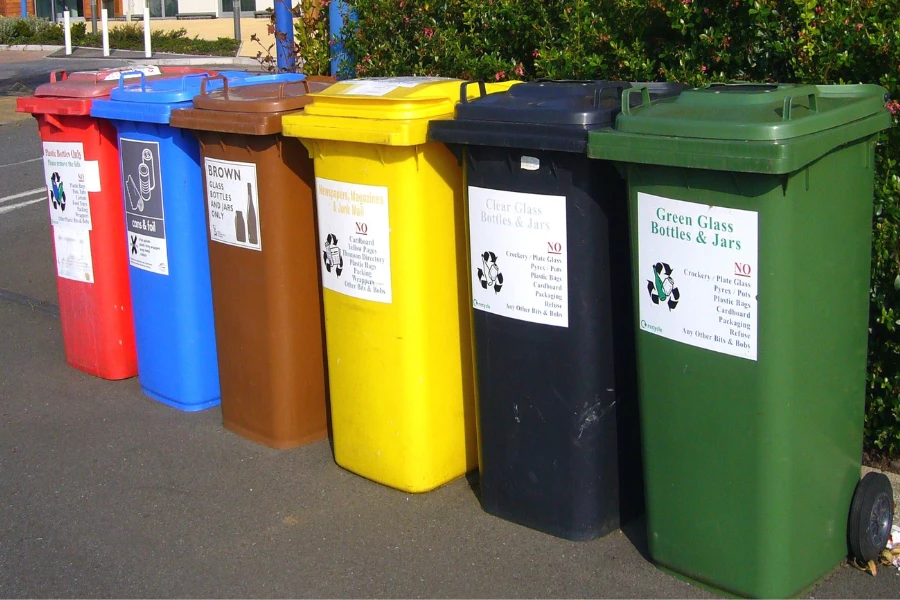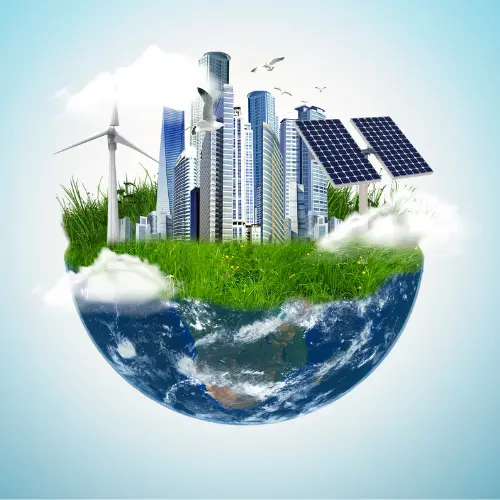No one disputes that we are a consumer society. Even things that once were considered major purchases expected to last many years and be repairable are now considered almost throw-away disposable items. Many small appliances and kitchen appliances are treated in this way. Some people wonder, with low prices of many consumer items, why do we need to recycle?
Recycling, for many people, is a way of life, not a question of economics. Many people feel that addressing issues such as climate change and resource depletion are bigger questions addressable individually by recycling. We’ll discuss some compelling reasons to recycle your household waste.
What Are the 5 Benefits of Recycling?
There are at least 5 unarguable reasons to recycle. Many people adopt an attitude of indifference. Making a difference by recycling takes many people and many households working together to see the benefits of recycling. Working together, we can see the results in these benefits that can come from recycling.
Recycling Benefits the Environment
The natural resources needed to create new products are not infinite. Obtaining these natural resources is often labor-intensive and expensive. We must also count the damage obtaining these resources does to the environment. Reducing the amount of damage done to our environment benefits, everyone.
The environment affects us in every aspect of our lives. From changes in weather patterns to the quality of the air we breathe, recycling impacts us. Consider some of these issues associated with recycling and our environment.
- Natural resources are not infinite, and many are considered non-renewable. Americans depend on products that use 94 non-renewable resources. The use of non-renewable resources has increased from 88 percent in 1945 to the present level of 94 percent.
- Recycling already saves about 80 percent of the wood resources used in the United States. If everyone recycled paper, we would cut the amount of new wood required in future years by as much as 20 percent.
- Aluminum is one of the most used metals in the US consumer arena. Mining and extracting aluminum ore is expensive and energy-intensive. Experts suggest that it takes 95 percent less energy to recycle aluminum than producing the same aluminum from ore. Less aluminum mining means less damage to the environment as well.
- Recycling results in huge energy savings over creating products from new resources. Recycling steel can save 60 percent on production costs. Recycled plastics often save 60 percent on energy costs. Most of these costs savings are in the form of reduced energy needed to produce finished products. Reducing energy lowers the demands on the energy grid.
Every recycled can, paper, or plastic bottle, reduces the cost to the environment in terms of energy production, resource production, and manufacturing. Reducing stress on the environment and natural resources creates a more sustainable environmental model for the future.
The Economy of Recycling
Recycling can be a boon to both local and national economies. Recycling provides jobs that benefit workers and the local economy. Many have seen a rise in employment when recycling rates climb. Recycling can also benefit other sectors of the economy by producing raw materials closer to the end-users. This proximity often means new jobs in other sectors as well.
Recycling affects almost every sector of production, from raw materials to the product. Returning recycled materials to productive use rather than the content of landfills creates several sustainable benefits to the economy.
- Burning five tons of waste creates one job. Landfilling the same 5 tons creates 6 jobs. Recycling 5 tons of waste creates 36 jobs across the industry sectors.
- California expects to add 45,000 recycling-related jobs when the state meets its goal of 50 percent recycling.
- Massachusetts employs approximately 9,000 people across the state in its recycling centers. More than half of these jobs are in manufacturing organizations that benefit from the reduced cost of recycled material. Experts estimate that these jobs represent half a billion dollars in economic benefits for the state.
Many states are actively working to increase the rate of recycling among their citizens. In almost every case, there are positive and significant upticks in the local economies in these states.
Recycling Benefits Us Now and Into the Future
Recycling benefits the present in almost uncountable ways. These benefits carry forward into the future as well. Creating a more sustainable production and consumer orientation ensures that future generations enjoy a better environment and have finite natural resources on which they can draw. Returning waste to effective forms through recycling and reuse programs makes sense on many levels.
Benefitting Society is a Function of Recycling
Recycling can benefit society in several ways. As a collective, we all want the best living and working conditions possible in our communities. Recycling can help improve society in several ways that many people fail to realize.
- Recycling can improve public health by positively impacting the environments in and around our urban areas.
- An overall rise in community spirit and pride is often associated with increased participation in recycling programs.
- Individually many people experience better attitudes and feelings of purpose when they start actively recycling. These types of communal attitudes and feelings tend to raise the community spirit overall.
Greater pride in yourself and your community is a hard benefit to quantify. There seems to be a direct link between recycling in a community and community pride among its inhabitants.
Sustaining Our Systems by Recycling
The long-term sustainability of our natural and man-made systems generates a lot of debate. As our world population grows, the demand for goods and food increases. These increased needs put more strain on our already stressed ecosystems and man-made systems. Recycling can help reduce these stresses to conserve and protect our environmental systems and man-made systems.
- Harvesting natural resources doesn’t just cost money. The process of harvesting resources is disruptive to natural systems and man-made systems.
- Recycled materials can help reduce overall carbon emissions and increase the stability of our climate.
- Recycled materials are often cheaper to produce than a resource that is harvested in traditional ways. Reduced cost of materials produces more jobs, more products, and a healthier economy.
Our current system of production is unsustainable in many ways. Many natural resources are not sustainable and are finite. The cost of damage to our ecosystems and climate is incalculable and is often estimated to run into the billions, if not trillions, of dollars.
Recycling Makes Sense on Every Front
The concept of recycling is not new. Our forefathers were noted for their thrift and the idea of reusing almost everything. Our consumer-oriented culture creates mountains of waste without any viable solutions. Recycling has the potential to create a sustainable product cycle that benefits everyone.
Sources:



Subscribe To Our Newsletter
Join our mailing list to receive news and updates. Don't worry. We will not smap you ;)
You have Successfully Subscribed!